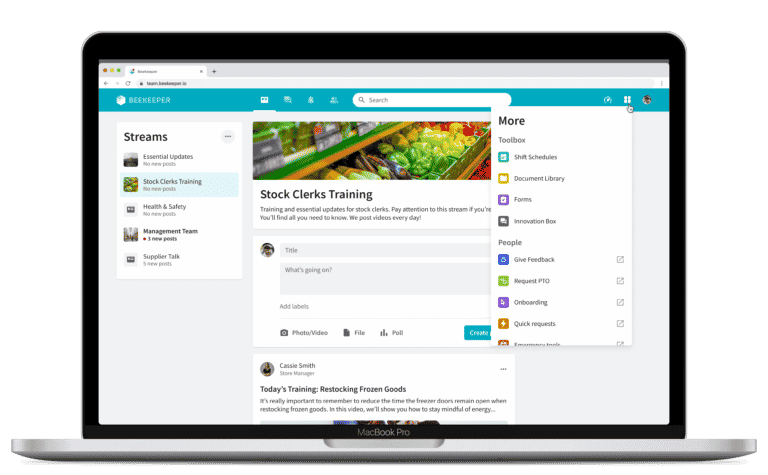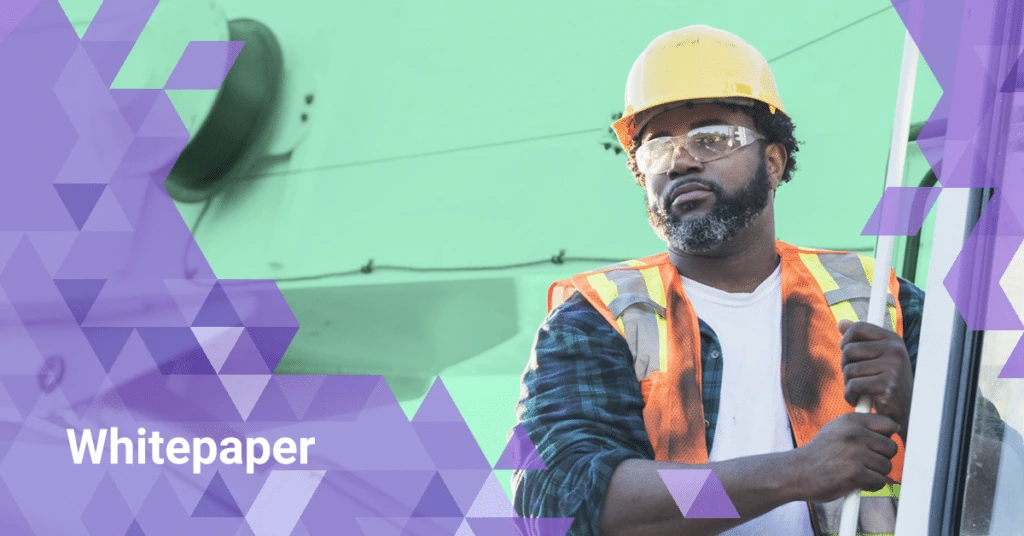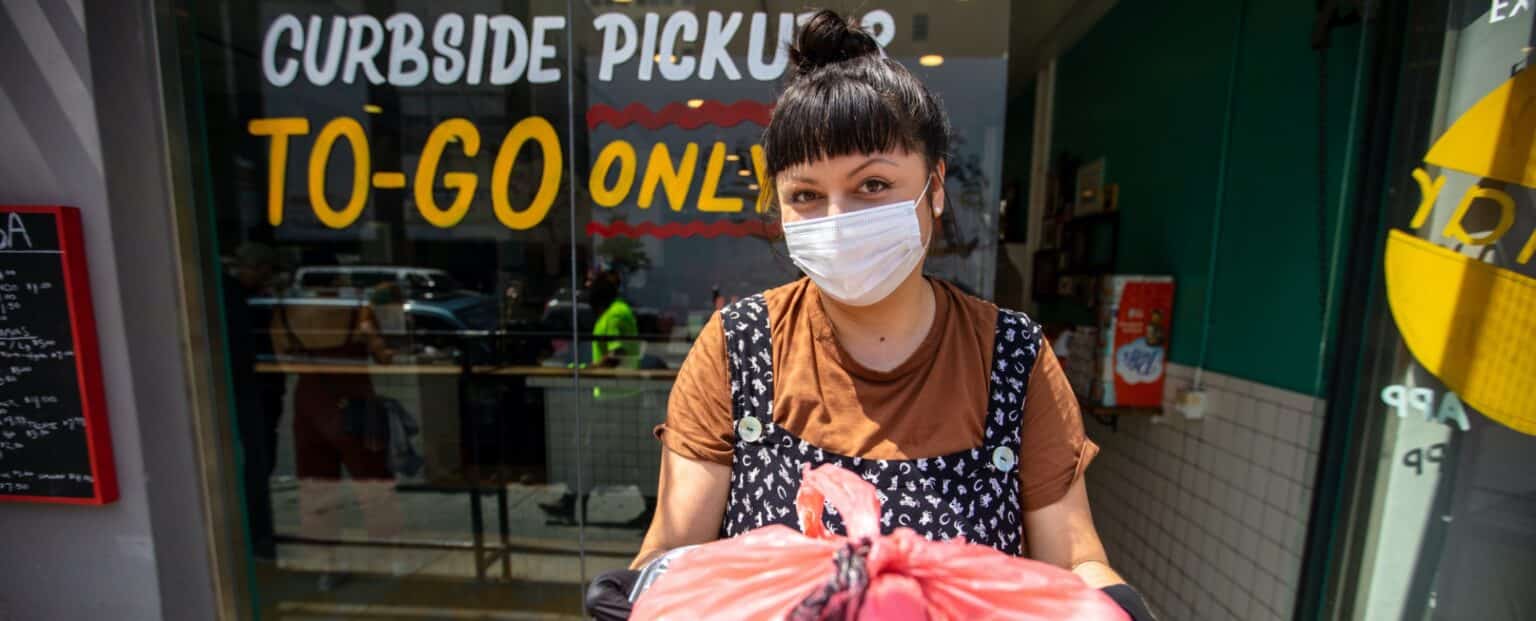What was true about retail management one year ago isn’t true today. COVID-19 has changed consumer behavior, creating new challenges for retailers and retail management.
Discover the latest retail industry trends to help frontline workers stay engaged.
According to McKinsey, most Americans believe that the shopping habits they’ve developed during the pandemic will last beyond the current crisis. That means habits like spending less time in-store and opting for contactless pickup instead will likely become the norm.
The pandemic is affecting brand loyalty, too. McKinsey also found that 77% of Americans have tried new shopping behaviors like switching brands. As a result, brands are having to adapt to shifting loyalties and maintain the same level of customer service. All while keeping their frontline workers safe and engaged.
In this article, we’ll explore the specific challenges retailers are facing right now and give suggestions on choosing the right software to navigate through them.
What Is Retail Management?
To put it simply, retail management involves overseeing all the steps that bring customers into a store and help them get what they need.
Before COVID-19, customers had a much more leisurely approach to walking into a store, interacting with employees, and choosing what they want to buy.
Now, customers are much more likely to shop online or use curbside pickup. Their time in stores is more limited, as is their interaction with retail employees. These behaviors have intensified the three biggest challenges in retailing today:
- Employee productivity
- Engagement
- Connection to company values
Solving retailing management problems post-COVID-19 boils down to effective retail communication. Retailers and managers need to find the right strategies and software to keep employees well-informed and connected — not only to each other but the company as a whole. The more retailers invest in their frontline retail associates, the better they can deliver a customer experience that drives brand loyalty.
Choosing Retail Management System Software
Retail management software (RMS) is designed to enhance both the customer and employee experience. It’s a broad term that can apply to sales, talent acquisition, finance, marketing, and customer insight. But the most important aspect of choosing an RMS is how well it allows retail companies to develop an open yet organized communication strategy.
Having retail management system software that prioritizes communication strategy is invaluable in a post-COVID-19 landscape because:
- Retail employees must know about the latest health and safety information and how it impacts their shifts and interactions with customers.
- Customers are more likely to do their research online before they walk in a store. Employees must have in-depth knowledge about products to deliver the best customer service experience.
- Given how quickly the retail landscape is shifting, companies should gather continuous feedback from their associates to stay up-to-date about consumer trends and habits.
Using Data and Analytics in Retail Strategy
Retail companies often focus entirely on analyzing consumer behavior without putting too much thought into analyzing the feedback from their own customer service teams.
Frontline retail associates who work directly with the customer have the most insight into what consumers are interested in. Companies need to take advantage of that institutional knowledge and make high-level decisions about their strategy based on the real-life experience of their teams.
Retail companies also have to take employee satisfaction into account. They should keep frontline teams connected to company values even when workers are dispersed throughout different store locations. Galvanizing a distributed workforce through a strong mission statement is a must to build company loyalty with hourly workers.
With an employee app like Beekeeper, retail managers can instantly measure employee satisfaction with polls and pulse surveys. They can also get instant feedback from employees about consumer behavior. With Beekeeper’s communication channels, that feedback can then become actionable through company-wide or team-wide updates.
Making the Most of a Retailing Application
A good retailing application should be able to handle all of a company’s communication needs. Being able to share company updates and get feedback from employees are just two critical capabilities of a retailing application.
To really make the most of an app, companies need to also consider at how it can improve operational processes like:
- Onboarding: Some retailers, like grocery stores, have experienced an increased demand for staffing during COVID-19. To make onboarding more efficient, companies need an app that can onboard new employees quickly by giving them access to the documentation, policies, and workflows they need.
- Training: In-person training is both expensive and time-consuming. But improving your employees’ skills can have a major impact on their ability to sell products. An app that can provide on-demand training right on an employee’s mobile device is the smart solution.
- Employee recognition: Too often, the hard work of individual retail associates goes unnoticed. This can make employees feel less appreciated and less motivated at their job. With the right app, managers can post polls to see which employees excel and then give those employees a public shout out in the app for the rest of the company to see.
- Consistent delivery of important information: Policy changes in retail are happening more frequently than ever. Instead of hoping that all employees are aware of those changes, an app should let managers make sure that everyone is on the same page.
P.S. Beekeeper helps retail companies improve in all of those areas, all in one platform:

Retail 101
Despite all of the challenges that COVID-19 has brought to the retail industry, the basic goal of retailing management remains constant: deliver a great customer service experience.
All of the components of that process, from attracting customers to making a sale, relies largely on the retail employees who see consumer behavior firsthand.
Using retail management system software that prioritizes internal communication is key to meeting the challenges brought on by the current global crisis. Companies need to make the best use of a retailing application that allows employees to connect with managers and get critical information at a moment’s notice.
Download our Retail Survival Guide Report from Retail TouchPoints to learn how to empower your associates.
Get the Report

About the author
Beekeeper
We make frontline lives easier, work safer, and teams more connected so businesses can reach new heights. At Beekeeper, we’re dedicated to making frontline lives easier by connecting workers with the tools, support, and information they need to feel valued, do their best work, and drive the business forward.








